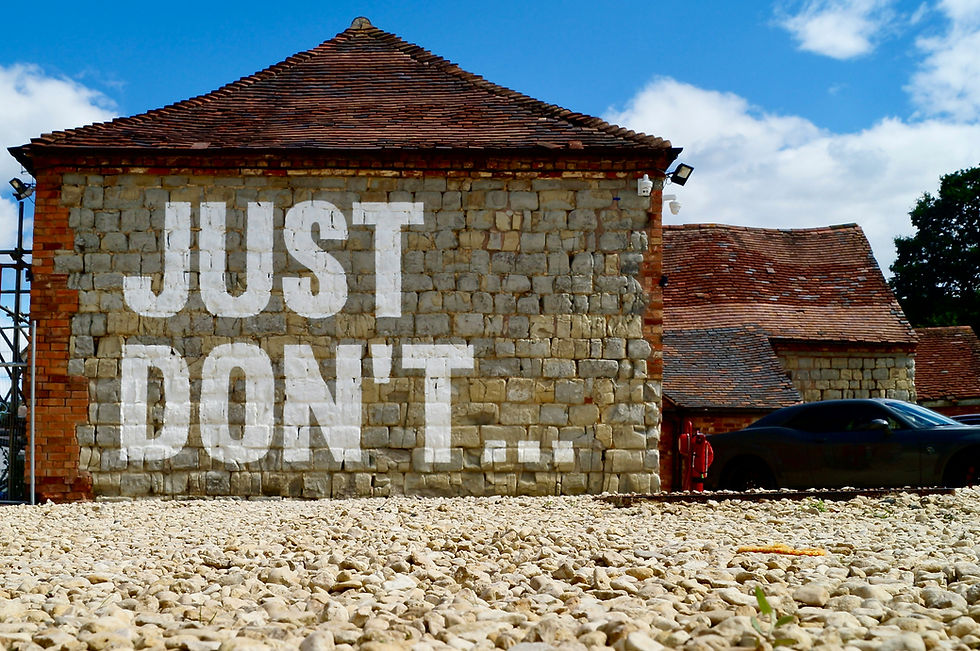Talking Race While White
- Jessica Kiragu
- Aug 1, 2022
- 4 min read
Updated: Oct 25, 2022
With other white people, I keep finding, it’s really hard.

I had an epic discussion with another white person over the weekend. This person is one who I dearly love. Someone I admire for their kindness and patience and their strength, generosity and goodness. We talked about race, marginalization, power, privilege, faith and about how whiteness is entangled with these things.
It started off as a simple conversation about faith and what it means to be pro-life (doesn’t sound simple, I know, but it was). Then our chat morphed into what felt like an all-out war over injustice, power over others and racism (more about how racism and pro-life are coupled can be found here). This talk with my loved one left me exhausted. I’m tired now as I think about it. Whiteness has a way of wearing us all down — that’s just what happened that day.
It wasn’t the first time we talked about these things and I’m sure it won’t be the last. That’s part of the exhaustion. The whiteness we share and it’s influence on us isn’t going anywhere soon.
That day, I described how racism is breaking the hearts and spirits of my biracial kids. I told my loved one how the fear we have about losing the lives of my black husband and biracial kids to racism is real — that it’s founded in experience, in facts and in research. We talked about how we have to teach my kids things about themselves and about race to protect their lives and preserve their well-being. I told my loved one how simply sending my kids and husband out in the world each day is an act of faith.
My loved one, in turn, told me they felt attacked. They asked if I thought they were racist. They said they can’t help that they were born with white skin and that they don’t think about race. They told me that they share in the love I have for my husband and kids.
I know that they love us and I wasn’t meaning for them to feel attacked. In fact, I thought that their love and devotion for my family would help them draw close to the pain I was expressing. I was hoping that this one so dear to me could understand. I wanted them to see that whiteness is the cause of the terror my family faces and that it comes between my loved one and my family. I longed for this one who I love to catch sight of how the whiteness we were taught perpetuates racial inequity and that we can do something about it. I was looking for connection.
I crave belonging with the white people in my life. I desire closeness, for us to be continually growing our ability to hear and attend to one another’s pain and to pursue healing together. I want for us to see how whiteness keeps us constrained and for us to jointly condemn it. I don’t want to fight, or to divide, or to prove anything.
I also cannot ignore whiteness anymore for the sake of belonging or keeping the peace. I can’t go along with how we white people were socialized to be with one another around race and power. I can’t do these things and be about the wholeness and thriving of my kids and my spouse. I cannot keep with whiteness and be about my own thriving and wholeness. The conundrum is, when I point out whiteness to other white people, when I talk about the way whiteness harms, overwhelmingly, it brings rejection and division.
I’m not sure how my loved one experienced the conversation we had. I’m not in their head or in their heart. I can’t confirm their innermost thoughts, feelings or intentions. But I know them and I know how I experienced our talk.
I know too how their response that day differed from the way they’ve responded to my pain at other times. I shared my heartbreak and dread and my normally compassionate and caring loved one, could not hear it. What I experienced that day was whiteness taking over and tearing us apart.
I’m not looking for sympathy. I’m also not expecting perfection and expertise as I talk with other white people about race. I’m not great at it either — I’m a trained therapist and fiercely love people of color — and whiteness, time and again, gets the better of my professional training and deep love. Whiteness feels like instinct, it’s difficult to do or be different.
My intention in writing this is the same it was that day, I want to make whiteness — and the harm it does — more visible. I long to pursue equality, to be love, to seek justice and to do other than bring hurt and sorrow — even when this means examining and un-learning who and how I’ve learned and am expected to be. My hope in writing here is the same too — I want belonging and connection with other white people. I want our love and shared humanity to overtake us when whiteness tries to keep us stuck. In writing this, I’m looking to be more free and I’m looking for other white people to join with me in the same.




Comments